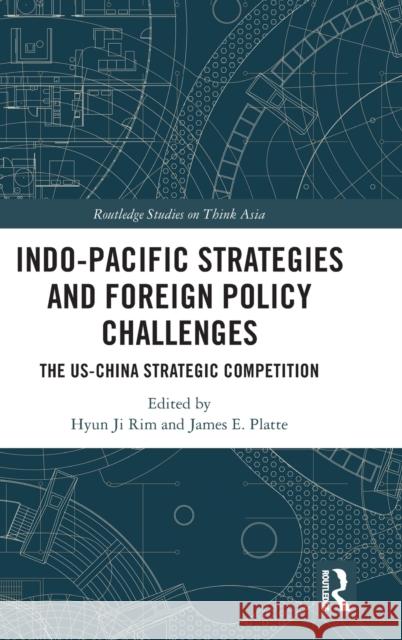Indo-Pacific Strategies and Foreign Policy Challenges: The US-China Strategic Competition » książka
Indo-Pacific Strategies and Foreign Policy Challenges: The US-China Strategic Competition
ISBN-13: 9781032454481 / Angielski / Twarda / 2023 / 256 str.
Indo-Pacific Strategies and Foreign Policy Challenges: The US-China Strategic Competition
ISBN-13: 9781032454481 / Angielski / Twarda / 2023 / 256 str.
(netto: 723,00 VAT: 5%)
Najniższa cena z 30 dni: 680,04
ok. 22 dni roboczych.
Darmowa dostawa!
This book examines key issue areas of Indo-Pacific strategies such as cyber security, space security, maritime security, emerging technologies, and institutional framework in the context of deepening US-China rivalry. With greater interconnectedness across various fields, the Indo-Pacific region faces greater security challenges including future strategic power competition. States are increasingly engaging in intense strategic activities and strengthening partnerships. The first part of book focuses on the strategic competition between the United States and China in different areas including cyber security, space security, maritime security, emerging technologies, and institutional framework. The second part of the book presents the perspectives of different local actors in the regional theatre and the intentions and concepts of their growing interconnectedness under Indo-Pacific strategies, including China, Russia, Taiwan, Hong Kong, and North Korea. Through examining different aspects of US Indo-Pacific strategy, this edited book contributes to better understanding of US Indo-Pacific strategy and its implications for broader security cooperation in a more interconnected world. The book will be of interest to scholars and policy makers working on Asian Security, Politics, International Relations and the security dynamics of East Asia and the Indo-Pacific.
This book examines key issue areas of Indo-Pacific strategies such as cyber security, space security, maritime security, emerging technologies, and institutional framework in the context of deepening US-China rivalry.
With greater interconnectedness across various fields, the Indo-Pacific region faces greater security challenges including future strategic power competition. States are increasingly engaging in intense strategic activities and strengthening partnerships. The first part of book focuses on the strategic competition between the United States and China in different areas including cyber security, space security, maritime security, emerging technologies, and institutional framework. The second part of the book presents the perspectives of different local actors in the regional theatre and the intentions and concepts of their growing interconnectedness under Indo-Pacific strategies, including China, Russia, Taiwan, Hong Kong, and North Korea.
Through examining different aspects of US Indo-Pacific strategy, this edited book contributes to better understanding of US Indo-Pacific strategy and its implications for broader security cooperation in a more interconnected world. The book will be of interest to scholars and policy makers working on Asian Security, Politics, International Relations and the security dynamics of East Asia and the Indo-Pacific.











